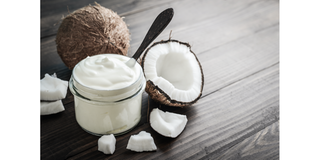Tanzanian firm targets production of coconut cream

What you need to know:
- Simba Foods intends to import technologies from Indonesia to set up a processing plant for the nutrient-rich coconut cream recipe which is currently on the import list
Jakarta. The Dar es Salaam-based Simba Group of Companies intends to establish a processing plant for the nutrient-rich coconut cream.
Through its Simba Foods subsidiary, the firm is exploring relevant technologies from Indonesia to roll out local production of the recipe.
"Currently, we are importing packed coconut cream from South East Asia. Now we want to use technologies from there to replicate production at home,” said Simon Mukajanga, the Group's director of business performance and management.
The setting up of the factory, he said, would offer employment to the jobless people back at home "in line with what our government wants us to do".
He said 24 percent of the coconut cream consumed in the country is imported, mostly from the Southeast Asian countries like Indonesia, a situation he describes as "not viable in the long term".
Mr Mukajanga was among a few businessmen from Tanzania who were in Jakarta, the Indonesian capital, for that country's annual Trade Expo which ended at the weekend.
He told The Citizen here yesterday that Tanzania has the potential to produce the cream for local consumption and export to its neighbours.
"We have abundant raw materials for production of coconut kernels. We have the labour force and consumers are there in droves,” he said.
The business executive said during his stay in Indonesia he has reached out to factories making the coconut cream for partnership in the venture.
"I am here in Indonesia to explore how the technology can be applied in Tanzania and that Simba Group of Companies was seeking to establish a factory with the foreign counterpart on Joint Venture basis.
The coconut cream is a rich savory cream, sometimes used as an alternative in vegan and ketogenic recipes. It adds a rich taste and texture to deserts.
The cream differs with coconut milk although it is made from coconut milk and is considered a staple in several Southeast Asian countries.
Mr Mukajanga added that his firm intends to make the coconut cream in two packages weighing 65 milliliters and 200 ml, noting that the venture was demand driven.



